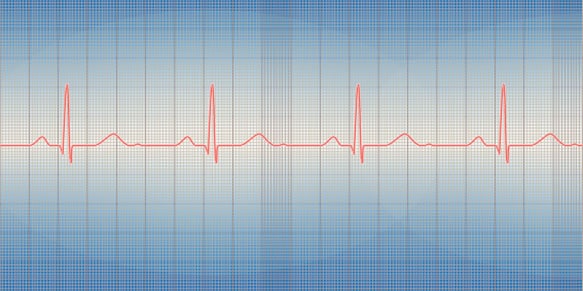
Living with any chronic disease can make you feel like you are living alone with it. It can be quite isolating to feel this way. Recurring thoughts like “Nobody understands me”, “I am going through this alone!”, “My symptoms are worse than everyone else’s!” are very common amongst those populations. Diabetes, as we are all aware of, is not only draining on physical energies but also emotional energies.
People who have diabetes are constantly working hard to keep their blood sugar levels on point, so that they do not experience low or high blood levels. They tend to get so consumed with the same daily routine that they forget that there are others who have the same routine as them.
I would like to invite you to stop for a few minutes and read to see how others are living with their diabetes. If you constantly feel like you are alone in this journey, it is important to remind yourself that you are not. The National Diabetes Statistics Report (2017) estimated the following numbers:
- 3 million people have diabetes in the US (that is 9.4% of the entire population!)
- 1 million out of the 30.3 have been diagnosed with diabetes
- The remaining 7.2 million people are still undiagnosed!
If you sit with those numbers long enough, you will realize that there are millions of people around you who are doing the same thing as you on a daily basis: keeping their blood sugar levels on target, prepping meals appropriate to their diet, ensuring all the while that they get enough physical activity.
In this article, we will share stories from two such people who are not only living with diabetes, but they are kicking diabetes’ ass. They are an inspiration to all of us because they have not only come into terms with and have accepted their diabetes but are also encouraging others to do the same by their sharing their stories, work, words and activism.
Before we get into reading about our contributors' life with their diabetes, it is important to keep the following factors in mind that can have an impact on how similar and/or different your management and your diabetes education could look like:
- The type of diabetes you have
- When were you diagnosed: recently or it has been a while
- Your lifestyle
- Your activity levels
- Your financial and social environment
- What stage of grief you are in
The other thing that people feel alone about is the struggles and frustrations that come with the diagnosis of diabetes. What are the roots of those struggles and frustrations? Time and time again, we see the following that cause strong negative emotions amongst people with diabetes:
- Ensuring they eat properly
- Getting enough exercise
- Having their sugar levels under control
- Trying to have a normal life
- Having more bad days than good ones
Stories from two people who have diabetes
As mentioned, we reached out to two extraordinary humans who shared their personal struggles and routines of how they live with diabetes daily. We asked them the following three simple questions:
- What is your daily day to day life schedule/routine look like?
- What are the most common frustrations and struggles that you go through that you think others are probably going through as well?
- How do you overcome the small hiccups you may have in your daily life?
Dan runs a very popular blog on the internet, www.thehealthydiabetic.co.uk, where he chronicles his journey with type 1 diabetes. Here he responds to those three questions:
- What is your daily day to day life schedule/routine look like?
The day to day life of a person with diabetes (or people with diabetes) varies just as much as anyone else, just with a few more complications and much more self-awareness. I try to keep as much routine in my day as possible, especially with my mornings as it sets me up for a good day usually and means that my head is in the right place for managing my condition as best as I can. That routine has taken time but it’s one that I enjoy. I don’t allow my diabetes to control the start of my day if I can help it. Here’s a typical working day for me with a narrative of my thought process:
05:00 Alarm goes off. Man, it’s early. Ok. How do I feel? Am I tired because it’s early or because I’m high? Or did I go low in the night? Better test myself. Right, out of bed in 3…2….1…..
05:15 Quick breakfast and coffee. What am I training this morning at the gym? How will affect my blood sugars? Do I need insulin midway or beforehand to correct? Or will I need more food?
06:00 Mid-workout. How am I feeling? Do my sugars feel ok? I better test. Why is that guy looking at me? Yeah everything’s fine. Good. Got my sweets in my gym bag just in case.
06:30 Workout done. Going to check my sugars again………good. Now for proper breakfast. Got to count those carbs and adjust my insulin to suit. Boy it’s still early…
08:00 This train is rammed. It’s so hot and I’m feeling stressed already. I know this will affect my levels. Do I have sweets and water in my bag? Great, now the train has stopped in the middle of nowhere!! What if I don’t have anything on me and I go low?! Will I need to announce to the train that I need something? Oh, good – we’re moving again. Almost at work.
08:30 London Victoria is SO busy. No way I’m getting to work on time trying to make my way through that. It’s only a 15-minute walk, I’ll do that. But I haven’t accounted for this additional exercise. Did I take too much insulin?
09:00 Right. At the office. Better test myself. 9.3? That’ll do.
11:00 Mid-way through my morning. There’s so much going on. Better check myself because I know stress raises them. What about my cup of coffee? Did the caffeine affect them as well? Have I had enough to eat? How do I feel? Am I hydrated enough?
12:30 Lunchtime! What do I have? Rice – ok, yes, I know how much is roughly in there through measuring it out the night before. Ok, adjust my insulin to match…just got to wait 15 minutes now so I don’t spoke. Eurgh! But I’m starving! Do I just deal with the spike?!?!
14:00 But did I carb count, right? Better check.
15:30 Been on my feet more than usual today. Got to make sure I’m not low. Ah, excellent. 6.5. Little win. Might even treat myself to something.
17:30 Time to head home. It’s a 45-minute commute usually. How do I feel? Do I have something on me in case I have a hypo? Best check the train times to make sure nothing is delayed. Nothing worse than being stuck somewhere and low. Need to check my levels as well.
18:00 On the train. How do I feel? Today’s been pretty good. No lows or highs. What can I learn from that?
18:30 Home!! Dinner time! Right, what to have? Got to make sure I keep an eye on any seasoning packs…hidden sugars in there! Do I even want carbs? Yeah, I do! What to have with it? I’ve had such a long day…I just want to relax and not think.
19:00 Lovely, dinner is made and smells great! Made lunch for tomorrow with the leftovers. Pre-meal test…. insulin and OUCH…forgot to change that needle. Ok, let’s eat.
22:00 Time to start thinking about bed. I feel sleepy. What are those post meal levels? 12!?!?? Eurgh. Too high. What did I do wrong? Did the same as last time I had that meal. Time to correct. How much? That’ll do. Have I got snacks nearby I did too much? Late night hypo’s are the absolute worst. Ok, now just to do my background insulin – last injection of the day.
22:30 Bed. Really hope I don’t go low. Or even higher. Waking up high is rubbish. Just want a good night’s sleep….
I recommend reading the following articles:
- Experts Share Ways You Can Support Your Family Member With Diabetes
- Skiing And Diabetes - Tips for Skiing and Snowboarding with Diabetes
- Experts Share Ways You Can Support Your Family Member With Diabetes
- Should I Tell Others About My Diabetes, Or Keep it a Secret?
- Can Diabetes Cause Sexual Dysfunction in Men and Women?
- What are the most common frustrations and struggles that you go through that you think others are probably going through as well?
Having to say no to people. This took me a while to get used to because you don’t want diabetes to change how you live your life. Unfortunately, it will impact it from time to time. I completely live by that I control my life, not my diabetes but low blood sugar or a day of constant highs can mean I need to just take some “me” time.
Not everyone in your life will fully understand the complications of living with diabetes. Sometimes, the condition just does not allow you to act the same as everyone else, which is frustrating as well. Whether it’s drinking, eating out, socializing or maybe you’ve just had a hard day with levels and you want nothing more than to have some quiet time.
Diabetes is probably one of the most known about conditions in the world, but it’s definitely one of the least understood. It took time for the people in my life to understand and acknowledge that every so often, I need to take a step back and put my health first. The ones that understood this the best and appreciated my position made it much easier for me and I cherish their response and attitude as it means a lot.
No is a really powerful word. Along with an explanation of why you’re using it, it allows the people around you to know that sometimes you’re not ok.
- How do you overcome the small hiccups you may have in your daily life?
Hiccups are part and parcel of having Type 1 Diabetes. Acceptance plays a massive role in this. When I was first diagnosed, I used to take anything that went wrong personally and blew it out of proportion. I reacted far quicker and treated whatever went wrong that I was a “bad diabetic”.
Over time, I began to realize that these hiccups usually had a lesson that I could learn from. I had to make sure that I educated and prepared myself to combat anything that didn’t quite go to plan. Learning how to carb-count. Easy to take glucose on me wherever I went with spares at work, in my gym bag and at home. Spare insulin at work. Regular testing. Keeping on top of my prescriptions. Talking about how I was feeling regularly. Keeping notes of my levels and reviewing them. Not missing appointments. Learning from other people with diabetes. The list could go on.
6 years into living with Type 1 Diabetes, I feel prepared for when things do go wrong and I totally expect them to go wrong now. This doesn’t mean I’m not looking after myself - far from it. My health is my most important thing to me. It trumps everything else in my life. But if I expect the worst, then I can prepare for it. Hope for the best, prepare for the worst. To think that I’ll have perfect glucose range from now until the end of my days is a pipe dream and unachievable.
There are so many factors that affect glucose levels that I simply try my best, but all the steps and lessons I’ve learnt into action and go from there. If it works, great. If it doesn’t, then I have everything I need on me to deal with the situation quickly and effectively. I do not beat myself up about it ever. I fully accept the good days and the bad and do my best to learn from both.
Mila Clarke Buckley is the Founder and Editor of www.HangryWoman.com. Through her blog, she has been sharing her journey of how she deals with type 2 diabetes, shares recipes and great resources for people with diabetes.
- What is your daily day to day life schedule/routine look like?
When I was first diagnosed with Type 2 Diabetes, I found it really hard to keep up with a routine, but I tried hard to plan my daily structure. In the morning, I test my blood sugar with my lancet set, take my blood pressure, insulin and medicines. I detail all of my vitals in my log and head on to eat breakfast.
Usually for breakfast I have something low carb, like a boiled egg and some cheese, or scrambled eggs with veggies. I then head off to work, and make it through the day. I test my blood sugar usually again before lunch to make sure I'm in target range, and then I'll eat my lunch - usually something with carbs (I always try to have my carbs mid-day so I can kind of work them off through activity during the day). I usually also have a snack in the mid-afternoon.
Alter work, I come home, take my second round of medicine and make dinner. Sometimes, I exercise before dinner and have a snack. Two hours after dinner, I take my blood sugar again and log it.
I work A LOT, so I'm not the best at getting a good night's sleep, but that's one of the best ways to manage your diabetes. You need to have rest.
- What are the most common frustrations and struggles that you go through that you think others are probably going through as well?
Some of my struggles are physical, like coming down from a few days being high when I know I've done the right things, and not being able to figure out what caused it. Some are emotional, like people asking you if you should eat certain things, or making snide remarks about your diet. I think that happens to a lot of people with diabetes just because the condition and how it's caused is misunderstood.
3. How do you overcome the small hiccups you may have in your daily life?
I really just take things day by day. I know that I'm not a perfect human being, and I'm going to have slip ups, and cravings or "cheat meals" and that's absolutely okay. The best thing I can do is to take things day by day and do my best to stay on track. Each day is a new opportunity to start fresh, so I try not to beat myself up for slipups.
What makes for an effective diabetes management?
Important themes from these stories that we can gather:
- Routine is very important in the effective management of one’s diabetes
- Accepting your diabetes will help make things easier
- Saying no is important!
- Slip-ups happen, and you can’t beat yourself over it
- Everyday is a chance to start fresh
- Diabetes is unique to each individual
Considerations when it comes to living with diabetes
People with diabetes, just like anyone else, have very full lives that they lead. They have families, they go to work, they exercise, they travel, they drive, they go to school and etc. However, no matter where you are in your day, no matter how long you’ve had diabetes for, or how well managed your diabetes is, you have the same fears and the same struggles as someone who was just diagnosed.
Worrying about what you eat
One of the major consensus within the groups of people with diabetes surrounds around eating habits and meal plans. If you have diabetes, you have to be on the constant lookout for what you can eat, how the food you are eating affects your blood sugar levels, is the insulin you took enough, how much carbs does this piece of bread has.
The questions are endless but the responses are limited. The constant worrying of what you can consume does not just stop with foods but also extends to drinking as well. Anything other than water can drive your numbers off the wall.
If your doctor has determined that you need to lose weight, you must also take into account the amount of food you can consume so you can shed that extra weight. Portion control can help with that. In order to ensure you are eating properly, meal planning is essential.
I read through dozens of blogs where each and every blogger emphasizes the importance of meal planning to make sure that you eat the right foods and the right amounts. For a person with diabetes, eating is not just for pleasure or tastes, it is also about making sure they do not get low or high blood sugar levels after eating. They have to accommodate for their insulin and/or other medications needs before and after they eat.
Getting enough exercise
You have probably heard this from your doctor, Certified Diabetes Educator, or anyone else who has diabetes: getting plenty of exercise is so important in keep your blood glucose levels in target. Along with food, exercise is the next most important part of managing your diabetes. In addition to keeping your blood levels low, it will also help you lose weight, lower blood pressure, improve your mood; help you get quality sleep at night. The fact that there are people with type 2 diabetes who manage their diabetes by eating right and getting enough exercise says a lot!
The Look AHEAD: Action for Health in Diabetes study demonstrates how adults with type 2 diabetes who ate less and moved more had better health benefits in the longer haul compared to those who had type 2 diabetes and did not make any of the changes as directed by their physician.
Further reading:
Not forgetting your medications
Ask any person with diabetes and they will tell you how important is their medication in the controlling of their diabetes. Whether it is insulin that you take or oral medications to manage your diabetes, it is an equal important part of it. Forgetting to administer your insulin at the right time or the right amount can lead to some unwanted emergency situations.
Oral medications that help manage diabetes have the same role. Taking one’s medication is not something a person with diabetes has the luxury of forgetting about simply because they forgot. It is part of their daily routine and it is drilled into them to take them on time.
Diabetes is unpredictable
The most frustrating part of diabetes management that we constantly hear or read about is its unpredictability. What worked for you one day may stop working for you the next day and you wouldn’t know why. The reasons behind the unpredictable fluctuations of blood levels are often unaccounted for. There are endless blog posts on diabetes related forums where you see the same post, written by different people: I am doing everything right, but my sugar levels are either too low or too high. Help!
It is important to remind yourself that if you are doing everything that you can which under your control; it is not your fault. Keep doing the best that you can do to manage your diabetes. Additional stress can only impact your numbers negatively.
Constantly educate others about your diabetes and how you got it
Do you find yourself constantly trying to explain your diabetes to others? You are not alone. There are many prying ears out there who want to know all about your diabetes and try to give unsolicited advice. It can get quite frustrating having to deal with uneducated or sometimes, very ignorant folks who have comments about why you have your diabetes. For some people, this can create a lot of anxiety for having to defend their life choices or for having being put on the spot.
All about those blood sugar levels
The whole basis of diabetes management is that you need to monitor your blood glucose daily. It is advised that you are regularly checking your levels and logging the numbers. Logging will allow you to keep track of your progresses, lows and highs, the bad days, the good days. Having a pattern makes it easy to point out what went wrong and if the incident can be prevented. Every person with diabetes does this and if you haven’t started doing it, you must! Never give up on your loved ones!
Keeping an eye on your blood sugar levels will ensure prevention of diabetes related complications. Early prevention can help you avoid possible amputations, glaucoma, infections, heart complications, etc.
Lifelong commitment
Having diabetes can be a long-life commitment. Accepting that you have diabetes will make the level of your commitment deeper. People who understand that what they do today will have impacts in their tomorrow have come to terms with their diabetes. Others who live with diabetes also have a robust support group in their family members and friends. Your Certified Diabetes Education and other members of the care team can help you with this as well. Attending diabetes classes in your community will open up the space where you can meet other people who have diabetes. Shared experiences amongst people with diabetes are a pot of gold for anyone who is feeling isolated and alone in managing their diabetes. Being part of forums and support groups will also normalize struggles and frustrations which you find to be unique to you only.
Your thoughts
How do you live with your diabetes? Share your thoughts and stories with our readers who will definitely benefit from reading them. You can share tips which help in making your diabetes management easier than usual. What works for you? What didn’t work for you? We are always looking forward to hearing from you.
TheDiabetesCouncil Article | Reviewed by Dr. Christine Traxler MD on May 20, 2020
References:
- https://www.diabetesdaily.com/forum/complications/662-can-you-live-normal-life-diabetes/
- https://www.webmd.com/diabetes/guide/diabetes-general-living-with
- https://www.niddk.nih.gov/news/for-reporters/look-ahead-action-health-diabetes/pages/default.aspx
- https://www.health.harvard.edu/blog/people-type-1-diabetes-living-longer-201501087611











